外研版选修7 Module 3 Literature Charles Dickens 课件(21张PPT)
文档属性
| 名称 | 外研版选修7 Module 3 Literature Charles Dickens 课件(21张PPT) |
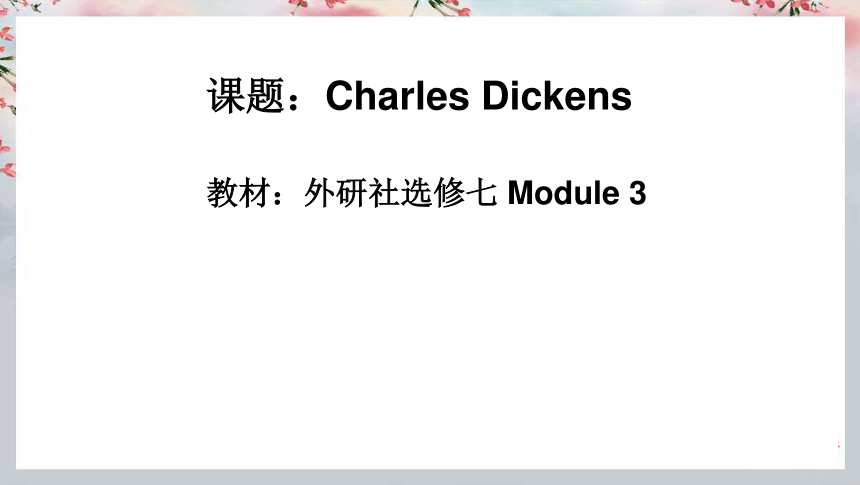
|
|
| 格式 | zip | ||
| 文件大小 | 3.6MB | ||
| 资源类型 | 教案 | ||
| 版本资源 | 外研版 | ||
| 科目 | 英语 | ||
| 更新时间 | 2020-05-21 00:00:00 | ||
图片预览

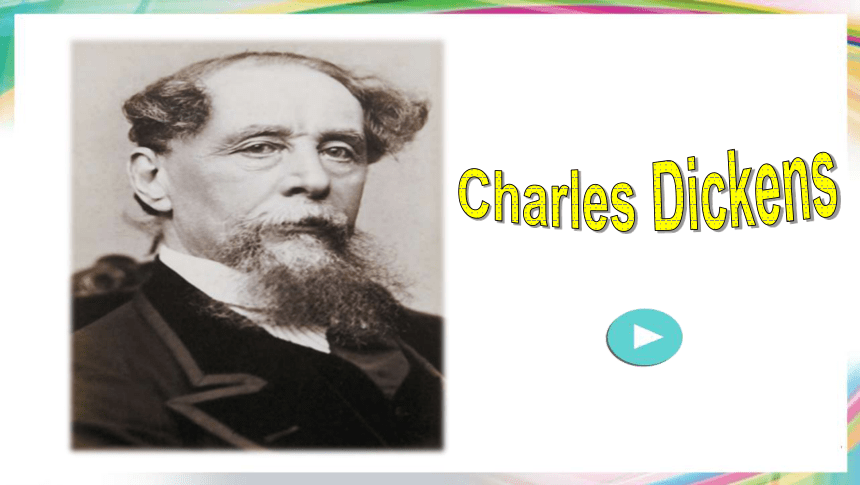
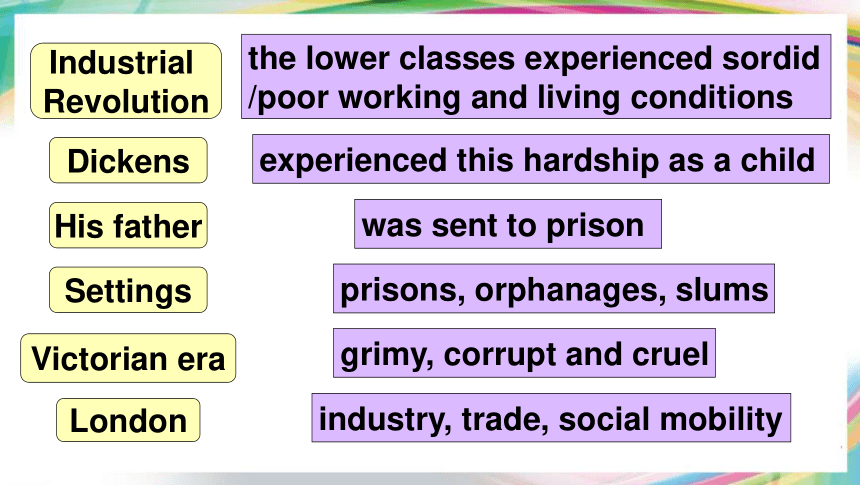
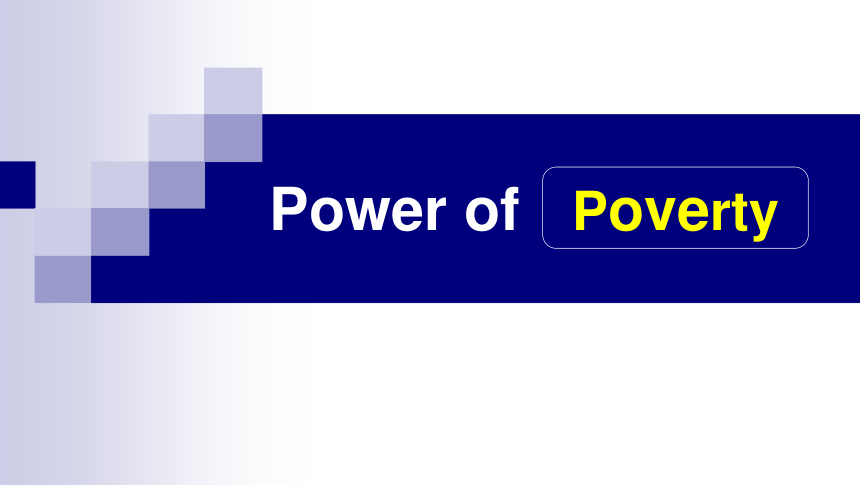

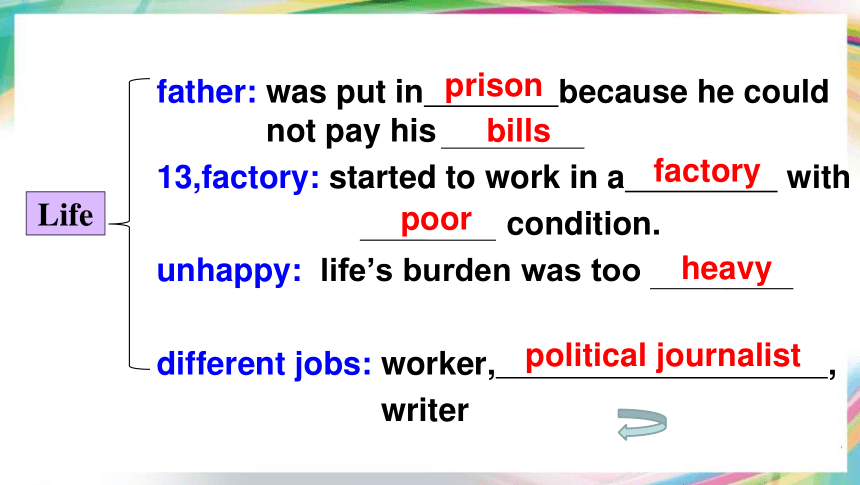
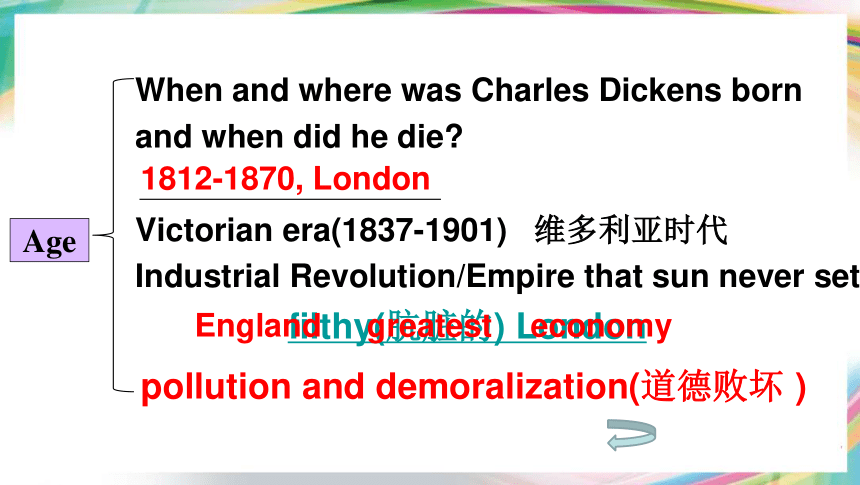
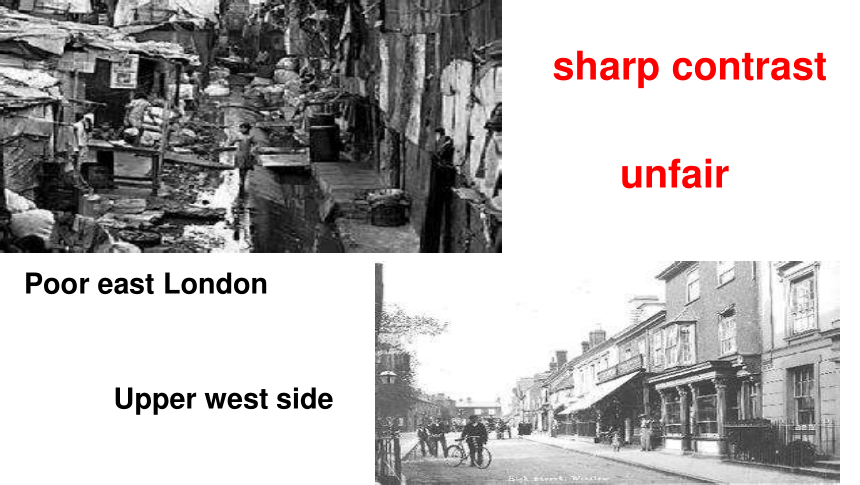
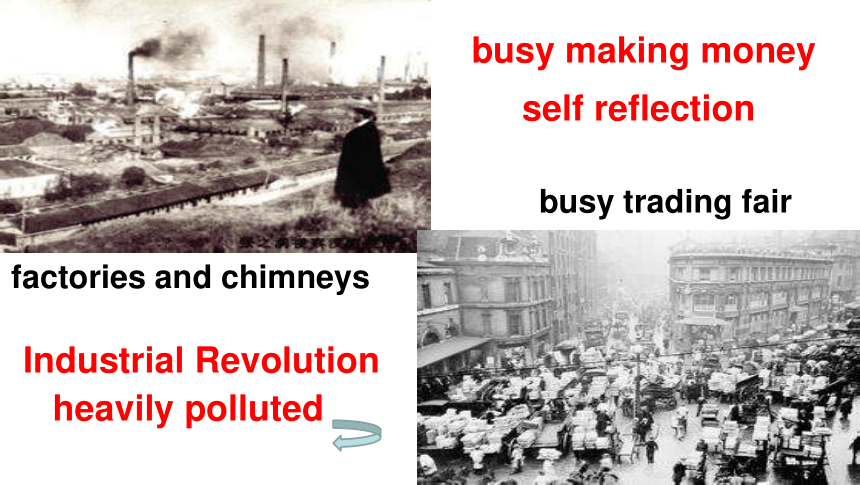
文档简介
(共21张PPT)
课题:Charles Dickens 教材:外研社选修七 Module 3
the lower classes experienced sordid
/poor working and living conditions
Industrial
Revolution
Dickens
experienced this hardship as a child
His father
was sent to prison
Settings
prisons, orphanages, slums
Victorian era
grimy, corrupt and cruel
London
industry, trade, social mobility
Power of
Poverty
作者生平
Q1: Where can we find Poverty?
Poverty
Life
Age
Works
poor
filthy
miserable
历史背景
作品
Charles Dickens’ life
the society at that time
the characters
father: was put in because he could not pay his
13,factory: started to work in a with
condition.
unhappy: life’s burden was too
different jobs: worker, ,
writer
Life
?prison
?bills
?factory
?heavy
?political journalist
?poor
When and where was Charles Dickens born
and when did he die?
Victorian era(1837-1901) 维多利亚时代
Industrial Revolution/Empire that sun never set
filthy(肮脏的) London
Age
?1812-1870, London
pollution and demoralization(道德败坏 )
greatest
economy
England
Poor east London
Upper west side
sharp contrast
unfair
factories and chimneys
busy trading fair
heavily polluted
self reflection
busy making money
Industrial Revolution
miserable / poor
He lost his father when he was very young and he was adopted by his relatives, but he lived a very poor life and was mistreated (they treated him badly).
大卫·科波菲尔
Can you name some of his works ?
orphan
雾都孤儿
Great Expectations
lower classes
Abel Magwitch
Pip
Miss Havisham
Estella
Who is poor in your opinion?
Poverty is everywhere.
Q2: Why did Charles Dickens write Poverty?
1. to draw people’s attention to the poor
2. to reveal the conflicts between material richness and spiritual poverty
3. to save his country
I love it because I hate it.
I hate it because I love it.
I hate my city because I love it.
爱之深,恨之切
Power
Poverty
a master
to show his concern
to his country, his people and his city
to fight against
the evils and
the unfairness
save his country
Of Studies 读书
Francis Bacon 弗朗西斯·培根
Studies serve for delight, 读书足以怡情
for?ornament, 足以博彩
and for ability. 足以长才
for fun
knowledgeable
top level
Charles Dickens
Charles Dickens (1812-1870) was born in London. His father was put in 1__________(prisoner) because he could not pay his bills, and two days after his 13th birthday, Dickens started work in a factory, 2_____________ (experience) real poverty. He was very unhappy, but later in life, he was able to write very well about 3__________ (poor) because he?had actually experienced it 4________ (he).
高考链接 语法填空
prison
experiencing
poverty
himself
Dickens always had a huge 5__________ of energy. As a young man, he worked for newspapers; and as a political journalist, he met all kinds of people. He used all these 6______________(experience) in his writing. Dickens started writing novels in his early 7__________(thirty) and became successful almost immediately. Oliver Twist, his second novel, was published in 1838 and was hugely successful. It told the story of a young 8______(orphanage)alone in the dangerous streets of London.
amount
experiences
thirties
orphan
The story ends happily—the young boy discovers 9__________ his real parents are and finds a loving home. However, it brought child poverty 10__________the attention of the public, and for this reason alone it is a very important novel.
Over the next 25 years, Dickens wrote a large 11________ of popular novels that are still 12__________(read) today. Among the most famous are David Copperfield, A Tale of Two Cities and Great Expectations..
who
to
number
read
Dickens often wrote about the problems of poor people, and as 13__________result of his work, the lives of the poor were improved.
Dickens’ books were popular in both America and England, and the 14__________(novel) travelled round both countries, reading from his novels. He often became very exciting during these readings. Some people believe that he had a heart attack as a result of his 15_____________(excite) during the reading of the final part of Olive Twist.
a
novelist
excitement
Acting out a scene from one of Charles Dickens’ novels.
课题:Charles Dickens 教材:外研社选修七 Module 3
the lower classes experienced sordid
/poor working and living conditions
Industrial
Revolution
Dickens
experienced this hardship as a child
His father
was sent to prison
Settings
prisons, orphanages, slums
Victorian era
grimy, corrupt and cruel
London
industry, trade, social mobility
Power of
Poverty
作者生平
Q1: Where can we find Poverty?
Poverty
Life
Age
Works
poor
filthy
miserable
历史背景
作品
Charles Dickens’ life
the society at that time
the characters
father: was put in because he could not pay his
13,factory: started to work in a with
condition.
unhappy: life’s burden was too
different jobs: worker, ,
writer
Life
?prison
?bills
?factory
?heavy
?political journalist
?poor
When and where was Charles Dickens born
and when did he die?
Victorian era(1837-1901) 维多利亚时代
Industrial Revolution/Empire that sun never set
filthy(肮脏的) London
Age
?1812-1870, London
pollution and demoralization(道德败坏 )
greatest
economy
England
Poor east London
Upper west side
sharp contrast
unfair
factories and chimneys
busy trading fair
heavily polluted
self reflection
busy making money
Industrial Revolution
miserable / poor
He lost his father when he was very young and he was adopted by his relatives, but he lived a very poor life and was mistreated (they treated him badly).
大卫·科波菲尔
Can you name some of his works ?
orphan
雾都孤儿
Great Expectations
lower classes
Abel Magwitch
Pip
Miss Havisham
Estella
Who is poor in your opinion?
Poverty is everywhere.
Q2: Why did Charles Dickens write Poverty?
1. to draw people’s attention to the poor
2. to reveal the conflicts between material richness and spiritual poverty
3. to save his country
I love it because I hate it.
I hate it because I love it.
I hate my city because I love it.
爱之深,恨之切
Power
Poverty
a master
to show his concern
to his country, his people and his city
to fight against
the evils and
the unfairness
save his country
Of Studies 读书
Francis Bacon 弗朗西斯·培根
Studies serve for delight, 读书足以怡情
for?ornament, 足以博彩
and for ability. 足以长才
for fun
knowledgeable
top level
Charles Dickens
Charles Dickens (1812-1870) was born in London. His father was put in 1__________(prisoner) because he could not pay his bills, and two days after his 13th birthday, Dickens started work in a factory, 2_____________ (experience) real poverty. He was very unhappy, but later in life, he was able to write very well about 3__________ (poor) because he?had actually experienced it 4________ (he).
高考链接 语法填空
prison
experiencing
poverty
himself
Dickens always had a huge 5__________ of energy. As a young man, he worked for newspapers; and as a political journalist, he met all kinds of people. He used all these 6______________(experience) in his writing. Dickens started writing novels in his early 7__________(thirty) and became successful almost immediately. Oliver Twist, his second novel, was published in 1838 and was hugely successful. It told the story of a young 8______(orphanage)alone in the dangerous streets of London.
amount
experiences
thirties
orphan
The story ends happily—the young boy discovers 9__________ his real parents are and finds a loving home. However, it brought child poverty 10__________the attention of the public, and for this reason alone it is a very important novel.
Over the next 25 years, Dickens wrote a large 11________ of popular novels that are still 12__________(read) today. Among the most famous are David Copperfield, A Tale of Two Cities and Great Expectations..
who
to
number
read
Dickens often wrote about the problems of poor people, and as 13__________result of his work, the lives of the poor were improved.
Dickens’ books were popular in both America and England, and the 14__________(novel) travelled round both countries, reading from his novels. He often became very exciting during these readings. Some people believe that he had a heart attack as a result of his 15_____________(excite) during the reading of the final part of Olive Twist.
a
novelist
excitement
Acting out a scene from one of Charles Dickens’ novels.
